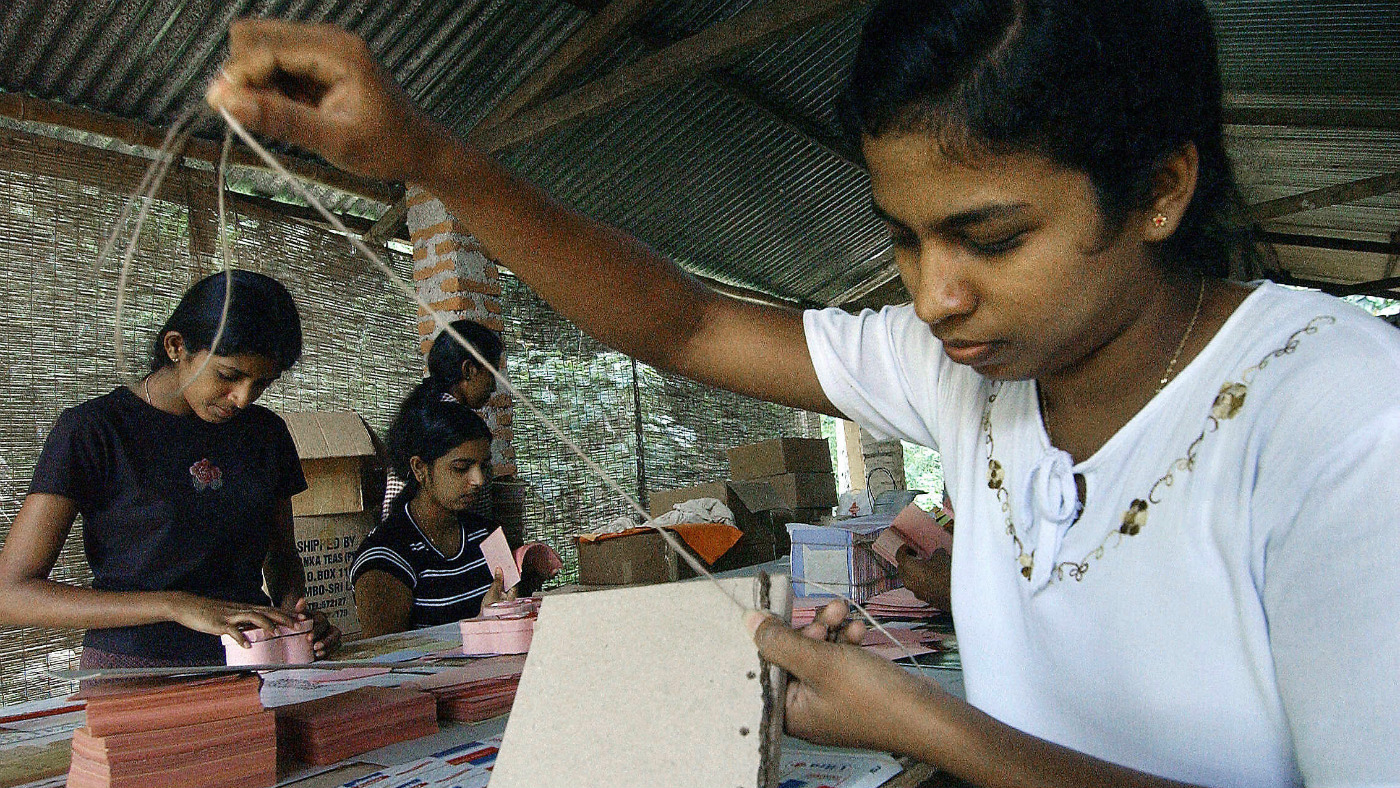Recruitment agencies order Sri Lankan women to take contraceptives before working in the Middle East
Agencies offer guarantee that women desperate for work will not fall pregnant

A free daily email with the biggest news stories of the day – and the best features from TheWeek.com
You are now subscribed
Your newsletter sign-up was successful
Sri Lankan women who move to the Middle East and Gulf states in order to take up domestic jobs are being are being told to take contraceptives before leaving.
Six recruiters licensed by the Sri Lankan government said they could provide an employer with a “three-month guarantee” that a maid would not become pregnant.
An agent from Gulf Jobs in Colombo, the Sri Lankan capital, told The Guardian: “Before we can send a maid, there is a medical check-up by the government and no one can influence that. But once the medical test is done… there is a device we can give in them. If you want it, we can arrange it.”
The Week
Escape your echo chamber. Get the facts behind the news, plus analysis from multiple perspectives.

Sign up for The Week's Free Newsletters
From our morning news briefing to a weekly Good News Newsletter, get the best of The Week delivered directly to your inbox.
From our morning news briefing to a weekly Good News Newsletter, get the best of The Week delivered directly to your inbox.
While no women affected were prepared to speak openly about being forced to take contraceptives, the Guardian found that many recruitment agencies make migrant workers take Depo-Provera, an injectable contraceptive that lasts for three months.
Rahini Bhaskaran, coordinator of Migrants Network, a migrant rights organisation, said women were so desperate for work that they complied unquestioningly with the stipulations of recruiters.
“Most women don’t know what the injections are for,” she said. “They are not told anything about it.”
Bhaskaran added that the contraceptive serves a double purpose: covering up potential sexual assaults by recruitment agents and serving as a guarantee to prospective employers in the Gulf that workers will not get pregnant.
A free daily email with the biggest news stories of the day – and the best features from TheWeek.com
“Some women think it’s necessary… to have sex with the agents to go abroad. The agents coax women, even promising marriage in some cases, and then abuse them,” said Bhaskaran.
Rothna Begum, women’s rights researcher at Human Rights Watch, said: “Migrant domestic workers in the Gulf are treated as commodities by agencies and employers to the extent that their bodies and their choices are no longer theirs at the point of migration. When they go into employment, it’s this power dynamic that allows exploitation and abuse to flourish.”
-
 How to Get to Heaven from Belfast: a ‘highly entertaining ride’
How to Get to Heaven from Belfast: a ‘highly entertaining ride’The Week Recommends Mystery-comedy from the creator of Derry Girls should be ‘your new binge-watch’
-
 The 8 best TV shows of the 1960s
The 8 best TV shows of the 1960sThe standout shows of this decade take viewers from outer space to the Wild West
-
 Microdramas are booming
Microdramas are boomingUnder the radar Scroll to watch a whole movie
-
 Will increasing tensions with Iran boil over into war?
Will increasing tensions with Iran boil over into war?Today’s Big Question President Donald Trump has recently been threatening the country
-
 Epstein files topple law CEO, roil UK government
Epstein files topple law CEO, roil UK governmentSpeed Read Peter Mandelson, Britain’s former ambassador to the US, is caught up in the scandal
-
 Iran and US prepare to meet after skirmishes
Iran and US prepare to meet after skirmishesSpeed Read The incident comes amid heightened tensions in the Middle East
-
 Israel retrieves final hostage’s body from Gaza
Israel retrieves final hostage’s body from GazaSpeed Read The 24-year-old police officer was killed during the initial Hamas attack
-
 China’s Xi targets top general in growing purge
China’s Xi targets top general in growing purgeSpeed Read Zhang Youxia is being investigated over ‘grave violations’ of the law
-
 Panama and Canada are negotiating over a crucial copper mine
Panama and Canada are negotiating over a crucial copper mineIn the Spotlight Panama is set to make a final decision on the mine this summer
-
 Why Greenland’s natural resources are nearly impossible to mine
Why Greenland’s natural resources are nearly impossible to mineThe Explainer The country’s natural landscape makes the task extremely difficult
-
 Trump, Iran trade threats as protest deaths rise
Trump, Iran trade threats as protest deaths riseSpeed Read The death toll in Iran has surpassed 500